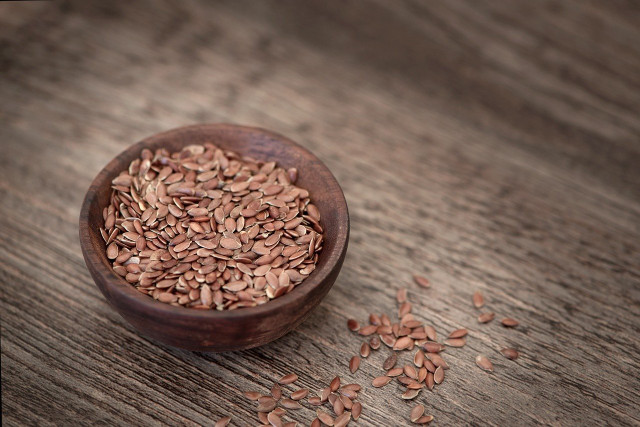
Digestive problems cause pain and discomfort and can severely limit our everyday lives. Find out how they arise and what you can do about digestive problems here.
Digestive problems can affect a wide range of organs and therefore manifest themselves in different ways. We generally use the term to describe complaints of the gastrointestinal tract. Typical symptoms include:
- Abdominal pain
- Flatulence
- Nausea and vomiting
-
Diarrhea or constipation
Possible causes of digestive problems

(Photo: CC0 / Pixabay / silviarita)
The causes of digestive problems can also vary greatly. For example, if you suffer from nausea, projectile vomiting, diarrhea and aching limbs, a norovirus infection could be the cause. This is often harmless and goes away after a few days. If some of the symptoms occur repeatedly or to a very severe extent, other diseases may be behind it. Some possible causes of such digestive disorders are, for example:
- Gastritis (inflammation of the stomach lining)
- Reflux disease (heartburn)
- Stomach ulcer
- Irritable bowel syndrome
- Intestinal infections
- Food intolerances (e.g. lactose intolerance, celiac disease)
Typical digestive problems such as constipation, flatulence and stomach pain are often simply caused by stress, an unhealthy diet or a lack of exercise and are therefore widespread complaints among the population.
If you get to the bottom of these causes and change your diet and lifestyle, you can get many digestive problems under control without medication. However, if the symptoms keep recurring or are accompanied by weight loss and blood in the stool, you should seek medical advice. You also need professional medical help if digestive problems occur acutely and severely or if fever, nausea and diarrhea do not subside.
Medicinal plants for digestive problems
If you have mild digestive problems, you don’t always have to resort to medication. There are many medicinal plants that have a calming and antispasmodic effect and can therefore relieve many gastrointestinal complaints. These include:
- fennel
- anise
- Caraway seeds
- Ginger
- peppermint
- chamomile
You can use these herbs individually or in combination. The best way to make a tea is to pour hot water over them and let the mixture steep for ten to fifteen minutes. Then remove the herbs if necessary and drink three to five cups of the warm tea throughout the day.
Flaxseed for digestive problems

(Photo: CC0 / Pixabay / Pezibear)
Another proven home remedy for digestive problems is linseed. It has a digestive and anti-irritant effect and helps restore balance in the gastrointestinal tract in cases of both diarrhea and constipation:
- Adults take about ten to 20 grams of flaxseed two to three times a day.
- Mix the flax seeds with 150 milliliters of water and let the mixture sit for a short while until the seeds have swollen slightly.
-
Your body can utilize ground flax seeds even better.
- Make sure to drink plenty of fluids throughout the day and do not exceed the daily dose of 45 grams of flaxseed.
You can find more information about home remedies that promote digestion here: Stimulate digestion: These natural home remedies help and 4 effective home remedies for constipation.
https://utopia.de/ratgeber/leinsamentee-hausmittel-bei-sodbrenn-und-verstopfung-selber-machen/
Soothing and pain-relieving: warmth, exercise and massage
Heat in the form of hot water bottles or heat pads that you place on your stomach also have a pain-relieving and calming effect. If you have bloating or constipation after a large and heavy meal, exercise is the first thing that helps to stimulate your digestion. A short walk or a yoga session is enough for this.
You can also support the work of your intestines with a colon massage. To do this, massage your stomach in small spiral movements from the bottom right to the bottom left for at least five minutes. If you haven’t had a bowel movement for several days, it may be a good idea to do the massage the other way around and start at the bottom left.
Prevent digestive problems: diet and exercise

(Photo: CC0 / Pixabay / Lisy_)
In order to prevent digestive problems from occurring in the first place, you should follow a few tips in your everyday life:
- Include as many fiber-rich foods as possible in your diet. This includes fruit, vegetables, whole grain products, nuts and seeds. Fiber has a balancing effect on our intestinal flora and ensures that the intestinal contents are removed more quickly.
- In order to work well, your digestive system needs a lot of fluids. In its ten rules for a balanced diet, the German Nutrition Society recommends drinking at least 1.5 liters of water or unsweetened tea a day.
- Integrate exercise into your daily routine. You don’t have to spend two hours in the gym. A leisurely walk, a jog or a short home workout are enough to keep your gastrointestinal tract moving.
- Avoid eating while standing or walking and wolfing down meals too quickly. Instead, take enough time to sit down and eat your food with enjoyment and mindfulness.
- Avoid holding in your bowel movements. If you feel like you need to go to the bathroom, it’s best to go right away.
- To avoid developing digestive problems as a result of stress, relaxation and breathing exercises, meditation or yoga can help.
Read more on Techzle\.com:
-
Flatulence – these are the causes of a bloated stomach
- Food intolerance: The 7 most important allergenic foods
- Light food for diarrhoea: recipes for light food for gastrointestinal problems
** marked with ** or orange underlined Links to sources are sometimes affiliate links: If you buy here, you are actively supporting Techzle\.com, because we then receive a small part of the sales proceeds. More information.